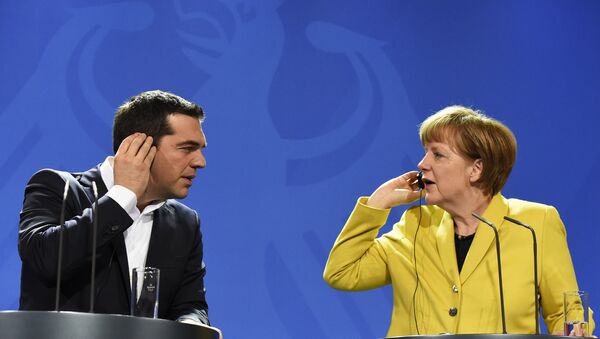According to the report, Greece's Ambassador to the US, Christos Panagopoulos, was in regular contact with the US government in the run up to the showdown talks between the Greek government and European Union leaders, headed by Angela Merkel, German Finance Minister Wolfgang Schauble, and Francois Hollande.
The debt crisis, dubbed 'Grexit' as it threatened the departure of Greece from the Eurozone and its potential consequent breakup, ended in July when Greece received a third bailout from its creditors in the EU and IMF, in return for surrendering its fiscal sovereignty to supervision from EU and IMF institutions.
"The US made it clear that the coalition would have to convince these countries that it was serious about implementing reforms if they were to then, in turn, offer their support," writes Kathimirini, listing the UK France, Italy and Austria as those which the US felt would be receptive to the approach.
"The Greek ambassador suggests that the US government also encouraged the International Monetary Fund to be vocal on the issue of debt relief," and also pushed NATO representatives to announce their worries about a potential Grexit, reports the newspaper.
"Washington’s strategy was to stress the geopolitical importance of keeping Greece in the single currency and the need for the eurozone to agree a further reduction of Greek debt."
Despite Washington's expertise, the Greek government failed in its attempt to extract concessions from the Germans before it agreed to a third bailout deal from creditors.
On July 12, 17 hours of crisis talks ended in defeat for the Greek government, which was compelled to accept a loan package worth €82 bln-€86 bln [$91 bln-$96 bln] over three years, in return for painful tax hikes, pension cuts, and liberal reforms to the labor market. In addition, the Greeks were forced to surrender their fiscal sovereignty over €50 bln [$56 bln] of national assets that were transferred to an independent fund, supervised by EU institutions.




